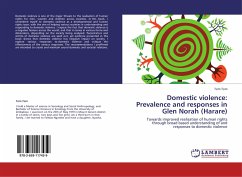Child work relating to the western world in the childhood discourse is rarely discussed and researched. Even more, research on children s domestic work in the minority world, in particular, has become exceptional. This gap is related to conventional views which maintain the idea of children as non-productive individuals in society. Nothing could be further than the truth. This study provides evidence that children have a role in domestic work and that they undertake responsibilities which are important for the household maintenance. Furthermore, it shows that children are able to negotiate their participation in domestic work and that the inter- and intragenerational division of domestic work is not a static but a dynamic process which is shaped and influenced by both the agency of the individual members of a household and the family structure. The main argument of the book is that children, through their participation in domestic work and action shape their household environments and structures, as their actions are shaped by household structures. All these should help shed light on the construction and reconstruction of childhood theorizing and structuration theory.
Bitte wählen Sie Ihr Anliegen aus.
Rechnungen
Retourenschein anfordern
Bestellstatus
Storno








